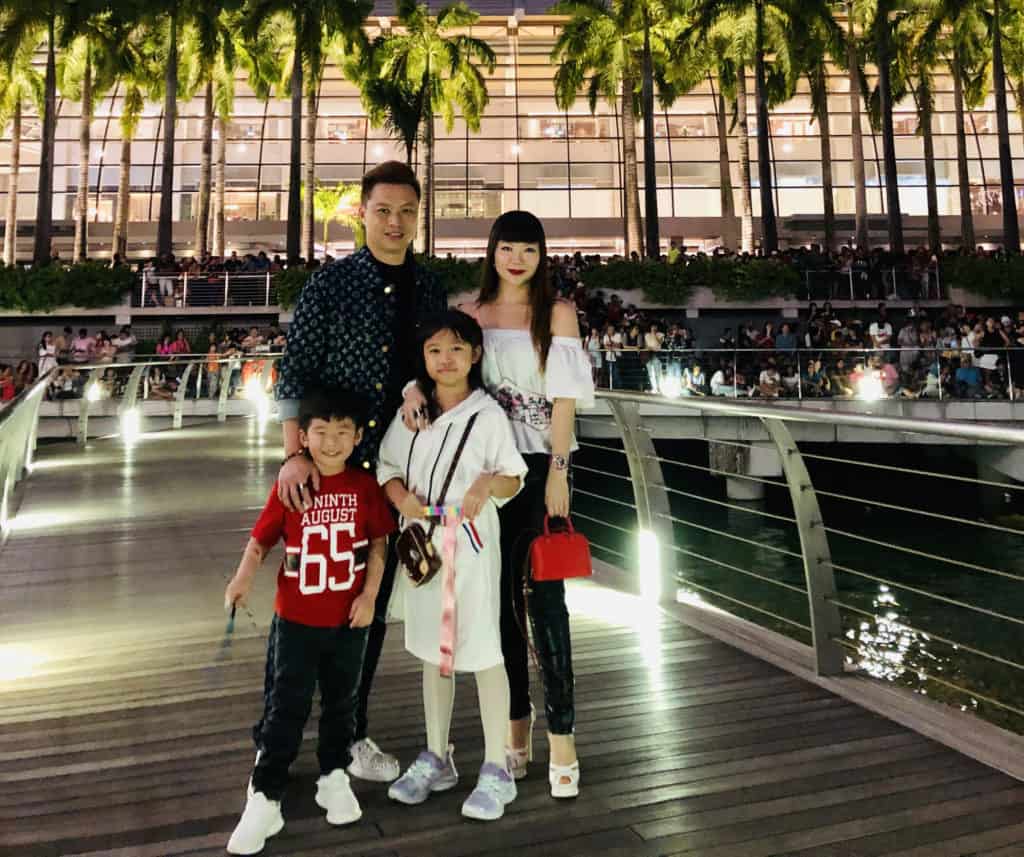Editor’s Note: For our Female Leadership in Finance Series, Teresa Leung recently had a chat with Cyndi Pei, Senior Vice President, Group Finance and Group Financial Controller at Singapore-listed beverage company Yeo Hiap Seng.
While priority setting is an issue facing everyone, a CFO who has multiple responsibilities at work and is a mother of young children must do it right to stay focused, committed, and efficient.
Pei shares with us how she—as a driven, passionate professional and a mother of two—juggles various responsibilities and achieves work-life balance.
Functioning as the CFO and reporting to the Group CEO, she’s responsible for the entire spectrum of finance strategic and operational activities in the Yeo Hiap Seng Group. She leads a 100-strong team and ten direct reports.
FutureCFO: Can you share with me your finance career journey? When did you start to become interested in finance?
Cyndi Pei (CP): My interest in finance started to blossom in my junior college days. Subjects such as economics and accounting resonate with me. I decided to start from there and then moved on to accountancy. Starting my career in auditing, I found it interesting and amazing to understand how businesses operate and create values—that was when I began to accumulate knowledge around finance and how finance works in businesses.
FutureCFO: There’s so much talk about work-life balance these days. You’ve multiple responsibilities. How do you juggle them? What is work-life balance to you?
CP: I believe work-life balance is how each individual defines it. Work-life balance is important because you can’t just continuously work and ignore other aspects of life. I find the four burners theory helpful when it comes to work-life balance.
Imagine your life is a stove and there are four burners, which are the major areas of life including family, health, work, and friends.
You can’t have all burners on full blast as they will run weak and the fire won’t burn as you want. In real life, if you want to succeed in certain areas, you need to switch off some burners or put certain things on the back burner.
Personally family and work are my priorities. I put friends in the back burner. While I’m conscious about health, I may not have a lot of me-time and workout time because my kids are young.
Having said that, I try to create “overlap areas” such as having friends at work and health elements in family activities.
To me work-life balance isn’t about counting the hours of work or what time you knock off work. I don’t mind working any hours in a weekday but as far as I can I reserve weekends for my family. So when I’m home I know it’s family time and when I’m at work I’m 100% focused on work. This is how I strike a balance.

(Photo supplied by Cyndi Pei)
FutureCFO: What are some of the biggest challenges facing you as a CFO today? Do you find gender an issue in your career? Is it an issue in the finance and accounting profession in general in Asia? Why or why not?
CP: While changing the under-representation of women in boards in Asia or Singapore is still a journey, gender isn’t an issue in my career—at least not in the company I work for and those I worked for previously, among my peers, and with my bosses. I don’t think any gender has a fixed set of attributes either.
From my experience, [career development] has a lot more to do with personal attributes, competency, and one’s ability to open up more perspectives into things like business problem solving.
A key challenge facing a CFO today is how he or she can bring business to the next level and drive a business to overcome challenges in the market and pursue the right direction and strategies.
[These capabilities] are important because of the multiple changes we’ve experienced: global political instability, changes in business models, higher price transparency, and more discerning consumers. As a result, business need to move fast enough, adapt, and tackle issues effectively.
That’s part of what I’m doing in the group: finance aside, I also take care of investor relations, M&A, real estate portfolio, and risk management. The latest addition is strategy, which is about driving the group and bringing it to the next level.
FutureCFO: What’s your advise to female finance & accounting professionals who aspire to become CFOs?
CP: One must be curious and learn other business fundamentals beyond numbers. As you understand others’ problems and why they have their problems, you could become someone who can help them.
This would make a huge difference in terms of solving business issues and sometimes even tensions and conflicting demands in an organization.
FutureCFO: Tell me something about yourself: What are you hobbies? How are some of these inspire your work and/or help you relax?
CP: I love to read—it helps me understand what happens in the world. Non-fiction books such as those on time management, productivity, and effective management of people are my favorites.
When it comes to relaxation and detoxing myself, I spend time with my family. My kids are aged 8 and 5 and that’s why I put them as a priority. I’m sure at a later time I can divert my time to something else when they want their independence. Going out with my kids for activities like cycling or just going to a playground to let them burn some energy helps me relax, recharge myself, and at the same time bond with them.
FutureCFO: Do you have any regret in your career journey? If you were given a chance to go back and make a change, what’d you do differently?
CP: Looking back my time during school, the career I went into, and the companies I joined, I feel there was some invisible force directing me to the right path. Sometimes certain doors closed on me but that made me go for a better opportunity. So I don’t have any regrets in my career.
Along the way, there were many helpful people while right things happened to help me realize I’m in the right direction. So I’d say I wouldn’t have done anything differently.
FutureCFO: If you had a chance to make a career decision again, would finance still be your choice or is there something else you’d like to try? Why?
CP: I still look at finance as the fundamental because at the end of the day businesses need to deliver numbers. If there’s something else I’d like to try, perhaps it’s using [my finance expertise] and going more forefront into operations and commercial.




